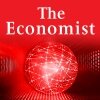Econtalk Archives, 2007
Education
EconTalk is an award-winning weekly talk show about economics in daily life. Featured guests include renowned economics professors, Nobel Prize winners, and exciting speakers on all kinds of topical matters related to economic thought. Topics include health care, free trade, economic growth, education, finance, politics, sports, book reviews, parenting, and the curiosities of everyday decision-making. Russ Roberts, of the Library of Economics and Liberty and George Mason U., draws you in with l (Author: EconTalk: Russ Roberts, Library of Economics and Liberty)
| Subscribe | Subscribe via iTunes™ |
| Author | EconTalk: Russ Roberts, Library of Economics and Liberty |
| Feed | http://www.econlib.org/library/EconTalk2007.xml |
| Site | http://www.EconTalk.org |
| Badge |

|
Recent episodes from Econtalk Archives, 2007
-
Published: Dec 24, 07William Duggan, professor of management at Columbia Business School at Columbia University, talks about his latest book, Strategic Intuition. Duggan critiques traditional methods of strategy and planning and suggests that the opportunism and adaptability are more productive detailed plans. He also discusses the nature of intuition and creativity along with insights into how the brain works to better understand problem-solving.
-
Published: Dec 17, 07Karol Boudreaux, Senior Research Fellow at George Mason University's Mercatus Center, talks with EconTalk host Russ Roberts about her field work and research in Rwanda and South Africa. In Rwanda, she studied how a change in incentives and property rights for coffee farmers has allowed the coffee bean growers to improve quality and prosper. In South Africa's Langa Township, she looked at how renters were allowed to become homeowners and how the ability to own changed their lives.
-
Published: Dec 10, 07Pete Boettke, of George Mason University, talks with EconTalk host Russ Roberts about the origins and tenets of Austrian economics. This is a wonderful introduction to how the so-called Austrian economists look at the world and how they continue to influence economics today.
-
Published: Dec 3, 07Mike Munger, frequent guest and longtime Econlib contributor, speaks with EconTalk host Russ Roberts about fair trade coffee and free trade agreements. Does the premium for fair trade coffee end up in the hands of the grower? What economic forces might stop that from happening? They discuss the business strategy of using higher wages as a marketing strategy to attract concerned consumers. They turn to the issue of free trade agreements. If the ideal situation is open borders to foreign products,
-
Published: Nov 26, 07Daniel Botkin, ecologist and author, talks with EconTalk host Russ Roberts about how we think about our role as humans in the natural world, the dynamic nature of environmental reality and the implications for how we react to global warming.
-
Published: Nov 19, 07Cass Sunstein of the University of Chicago talks about the ideas in his latest book, Worst-Case Scenarios. How should individuals and societies cope with low-probability events with potentially catastrophic consequences? In this conversation with EconTalk host Russ Roberts, Sunstein discusses the uselessness of the precautionary principle as a guide to behavior and the psychological challenges we all face in coping with uncertain, risky events. He also speculates why we have chosen politically t
-
Published: Nov 15, 07In this bonus middle-of-the-week podcast, Henry Aaron of the Brookings Institution talks with EconTalk host Russ Roberts about health care costs. Researchers in a New England Journal of Medicine article have estimated that the US could save $209 billion if the US went to a single-payer system like Canada. Is this number reliable? Aaron takes a deeper look at the estimate and discusses the relevance of such estimates for health care policy. This is a special mid-week podcast. It's a follow-up to
-
Published: Nov 12, 07Joel Waldfogel of the Wharton School of Business talks about the idea in his new book, The Tyranny of Markets: Why You Can't Always Get What You Want. He argues that when fixed costs are large, markets don't necessarily give people what they want and that, analogous to the political process, you can be hurt as the number of people with preferences that differ from yours gets larger. Host Russ Roberts challenges Waldfogel's claim that these phenomena are widespread and argues that in many cases,
-
Published: Nov 5, 07Arnold Kling of EconLog talks with EconTalk host Russ Roberts about the economics of health care and his book, A Crisis of Abundance: Rethinking How We Pay for Health Care. Kling discusses whether we get what we pay for when we spend money on health care, why health care isn't like cars, and why health care insurance isn't really insurance. The conversation closes with a discussion of innovation in America's health care system and why America is so unlike everywhere else.
-
Published: Oct 29, 07Bruce Yandle of Clemson University and George Mason University's Mercatus Center looks at the tragedy of the commons and the various ways that people have avoided the overuse of resources that are held in common. Examples discussed include fisheries, roads, rivers and the air. Yandle talks with EconTalk host Russ Roberts about the historical use of norms, cooperative ventures such as incorporating a river, the common law, and top-down command-and-control regulation to reduce air and water pollut
-
Published: Oct 22, 07Ian Ayres of Yale University Law School talks about the ideas in his new book, Super Crunchers: Why Thinking-by-Numbers Is the New Way to Be Smart. Ayres argues for the power of data and analysis over more traditional decision-making methods using judgment and intuition. He talks with EconTalk host Russ Roberts about predicting the quality of wine based on climate and rainfall, the increasing use of randomized data in the world of business, the use of evidence and information in medicine rather
-
Published: Oct 15, 07Author Robert Frank of Cornell University talks about economic education and his recent book, The Economic Naturalist. Frank argues that the traditional way of teaching economics via graphs and equations often fails to make any impression on students. In this conversation with host Russ Roberts, Frank outlines an alternative approach from his new book, where students find interesting questions and enigmas from everyday life. They then try to explain them using the economic way of thinking. Frank
-
Published: Oct 8, 07Thomas McCraw of Harvard University talks about the ideas of Joseph Schumpeter from his book, Prophet of Innovation: Joseph Schumpeter and Creative Destruction. McCraw and EconTalk host Russ Roberts discuss innovation, business strategy, the role of mathematics in economics, and Schumpeter's vision of competition embodied in his most important idea--creative destruction.
-
Published: Oct 1, 07Don Boudreaux of George Mason University talks with EconTalk host Russ Roberts about when market failure can be improved by government intervention. After discussing the evolution of economic thinking about externalities and public goods, the conversation turns to the case for government's role in promoting competition via antitrust regulation. Boudreaux argues that the origins of antitrust had nothing to do with protecting consumers from greedy monopolists. The source of political demand for an
-
Published: Sep 24, 07Mike Munger, of Duke University, and EconTalk host Russ Roberts clean up some loose ends from their previous conversation on recycling, move on to talk about the idea of buying local to reduce one's carbon footprint and then talk about the idea of peak oil. They close the conversation with the Rick Ankiel story and the implications for the Barry Bonds saga.
Advertisement
Popular Podcasts
-
Health
-
Music
-
Health
-
Sports & Recreation
-
News
-
Sports & Recreation
-
Music
-
Music














